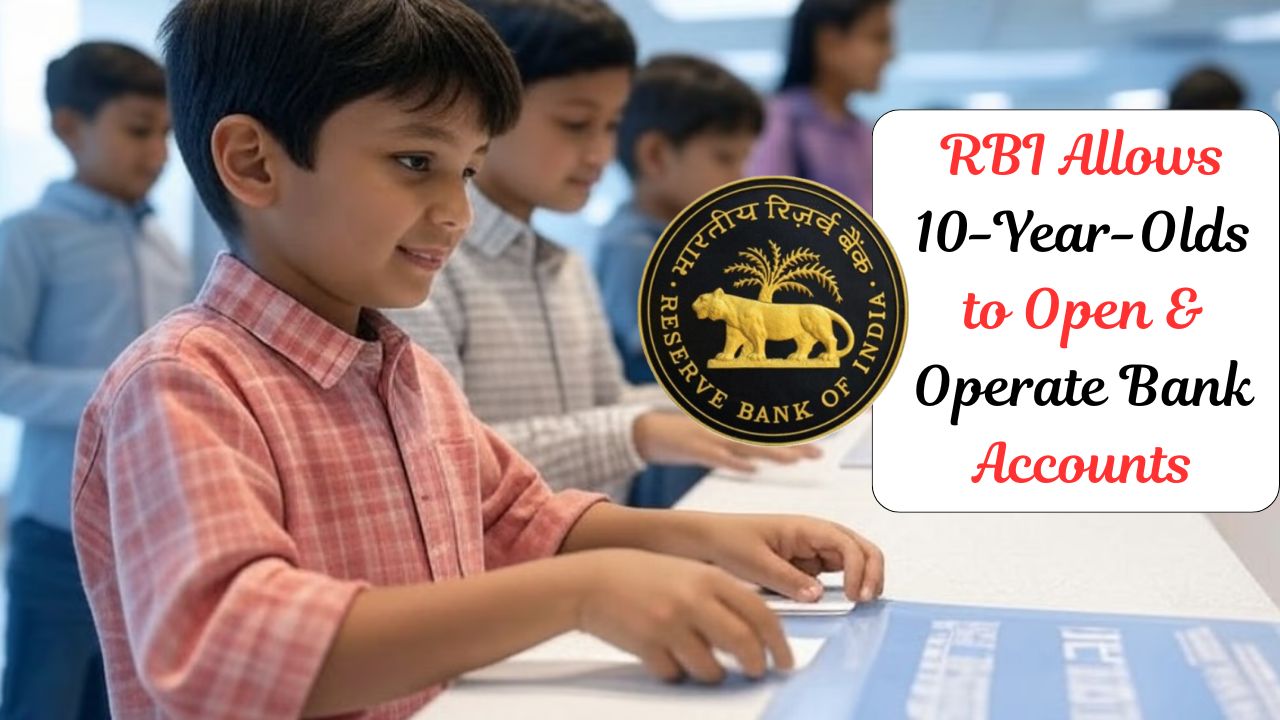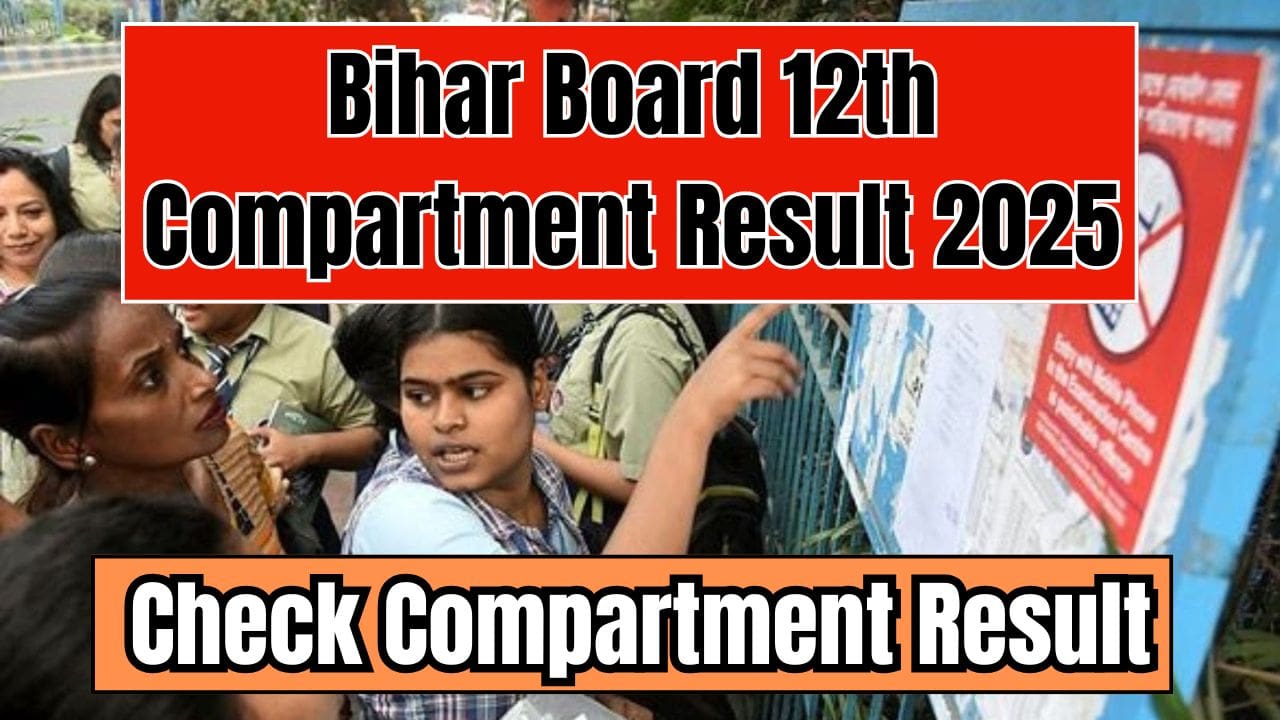RBI Allows 10-Year-Olds to Open and Operate Bank Accounts: The Reserve Bank of India (RBI) has taken a significant step toward the financial empowerment of minors by publishing a new set of guidelines on how kids can open and maintain bank accounts. Clarity, structure, and a child-centric emphasis are brought to banking for minors by the new standards, which were designed to streamline and harmonize the current legislation. With youngsters growing up with smartphones, digital wallets, and rapid payments, the new RBI regulations aim to keep up with the times by providing independence with safeguards.
RBI New Rules for Kids Saving Account
Here is a summary of the changes made by the RBI in April 2025 before getting into the specifics:
- Minors can create and maintain accounts at any age with the help of a guardian.
- Children ten years of age and up are able to manage their accounts on their own.
- Banks may provide digital services to children below 18 years in accordance with internal risk criteria.
- It is not permitted to overdraft.
- When a minor turns 18, there must be clear transition preparations in place.
- Now let’s examine each of these developments and determine how they affect parents, kids, and the banking industry as a whole.

RBI Allows 10-Year-Olds to Open and Operate Bank Accounts
1. Eligibility for Account Opening
In accordance with the new directive:
- A minor (who is below 18) of any age may open a savings or term deposit account, but their legal or natural guardian must oversee it.
- Mothers are able to act as guardian in accordance with the long standing RBI circular.
What This Signifies: With the ability to create bank accounts for children from birth, parents or legal guardians may now provide families with the opportunity to begin saving and investing early for future objectives like marriage or school.
2. Being independent at age 10 years or older
Children ten years of age and up are permitted to create and manage accounts on their own, but they must adhere to the bank’s restrictions.
- The bank’s risk management guidelines should be reflected in the terms and conditions.
- The young account holder must be made fully aware of these terms by the bank.
What This Signifies: Under careful supervision, a tech-savvy 12-year-old can have their own bank account with restricted digital access, encouraging financial independence.
Kerala 10th Result 2025 Live Updates: Direct Link to Check Marks, Scorecard & All Details
3. Banking Services Are Accepted (But Not Required)
Banks may provide small accounts with extra services like:
- Debit cards or ATMs for online banking
- Books of checks
- These services, however, are optional and rely on:
- The risk assessment of the bank
- The product’s appropriateness for minors
- The suitability of providing a young user with such characteristics
What This Signifies: Banks may now give more sophisticated services to kids as they get older and show responsibility by introducing tiered goods.
4. At 18, What Takes Place?
When a juvenile reaches the age of 18, which is regarded as adulthood, banks must get new operating instructions and specimen signatures.
- The balance needs to be confirmed if the account was managed by a guardian.
- When a kid reaches the age of 18 year, which is regarded as adulthood, banks must get new operating instructions and specimen signatures.
What This Means: To prevent misunderstanding or operational difficulties, the switch from minor to adult account will be planned and executed smoothly.
5. Adhering strictly Absence of overdrafts
Minors cannot run accounts that are overdrawn, either on their own or through guardians. These accounts:
- A credit balance needs to be kept up to date at all times.
- Not eligible for any credit or loan in this category.
What This Signifies: This serves as a safeguard against abuse and guarantees that children are only exposed to sound financial practices such as budgeting, tracking balances, and saving.
6. KYC and Due Diligence Regulations Apply
When banks open accounts for minors, they must: Conduct Customer Due Diligence (CDD).
- As the minor gets older, keep an eye on them and update their records.
What This Signifies: While granting liberty to kids, banks nevertheless need to be on the lookout, just as they would for adult consumers.
Telangana Bhu Bharati Act To Address Land-Related Issues: Check Here All Details
Why This Is Important
With so many young people in India, early banking exposure can help them develop sound financial habits, enhance their long-term saving practices, and advance financial inclusion. With proper supervision, the RBI permits children to create and maintain accounts, fostering a culture in which youngsters not only get money but also learn how to handle it. Additionally, this gives banks the chance to launch financial literacy initiatives, gamified savings platforms, and instructional banking products.
The RBI’s updated rules represent a daring move in the direction of producing a generation of responsible and financially informed people. They allow kids to experiment with and learn about money management while maintaining a safe environment by combining financial prudence with freedom and flexibility.
It serves as a push for banks to develop new and really kid-friendly banking solutions. These new standards encourage the maxims “begin early, stay safe, and grow wise.” A savings account can help you safeguard your future. Enjoy smooth digital banking, rapid access to your money, and great interest rates while you easily build your wealth.


![Assam Circle Offers New Super Saving Plans- Family pack and Jeevan Sathi plan 2025 [Complete Guide] 3 Assam Circle New Super Saving Plans](https://sancharnet.in/wp-content/uploads/2025/02/Assam-Circle-New-Super-Saving-Plans-1024x576.jpg)


![Kerala Lottery Result Today Live 28 Feb 2025 : KARUNYA PLUS KN-563 Friday 3PM Draw 6 [LIVE] Kerala Lottery Result Today (28.02.2025) KARUNYA PLUS KN-563 Friday 3PM Draw](https://sancharnet.in/wp-content/uploads/2025/02/LIVE-Kerala-Lottery-Result-Today-28.02.2025-KARUNYA-PLUS-KN-563-Friday-3PM-Draw-1024x576.jpg)
